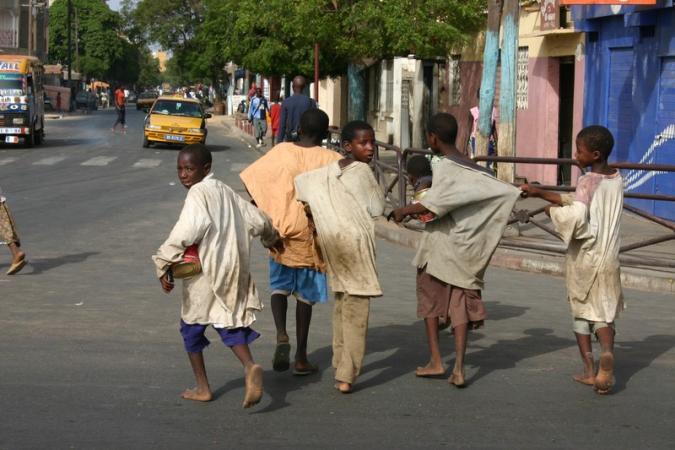
Begging in Mali: beggars with heavy axes, a public danger
With the impoverishment of the population, the phenomenon of begging is beginning to worry with its various facets. The case of beggars wearing heavy axes and asking for their pittance in the streets, in a country so affected by insecurity, does not leave anyone indifferent.
Although officially banned, begging is on the rise in the Malian capital, with a new and more disturbing form. With almost unbearable traffic congestion in Bamako, there are also the appearance on the streets of miners wearing heavy axes around their necks, asking and begging road users for food. These scenes often take place near the tricoloured traffic lights and at some high-traffic junctions.
While many people believe that begging was originally part of religious education and was intended "to train children in a certain hard way", today there is a worrying practice of begging. It is beginning to seriously annoy and disturb the conscience of peaceful citizens. The main roads, the streets, the public squares and places of worship are literally invaded by beggars of all kinds. According to some observers, some of them come from non-poor families. Whereas, according to some connoisseurs of religious values, it is when a person has no source of income, that religion allows him to beg, but only for a certain period of time, and not to make it a permanent activity.
Thus, in front of the tricoloured lights, for some time in Bamako and its environs, one can see a gang of miners carrying heavy axes around their necks, to arouse pity … These beggars ask for money to have food, making it seem that they have spent the whole day without finding a single wood to split and that they are hungry and visibly tired. They manage to deceive the vigilance of some people, who thus sympathise with their suffering. But the next day, they will be seen camping in front of another fire in the city in the same position of destitution. "we all know that it is starving and manipulative adults who are behind this practice of exploiting these exposed miners," says a trader located just a few cables from a crossroads frequented by these beggars.

Worse still, other beggars choose to be barefoot and wear torn rags to arouse more pity. This is how they can in turn ask for money to buy a shoe or worn clothes, in these cold times. . Others will pretend that they are simply thirsty and need 50 CFA francs to drink water.
If this is added to the traditional begging, which concerned talibés, twins and the disabled, there is a serious risk, above all, in this period of rampant insecurity in our cities. Our authorities are being called upon to regulate this practice, otherwise Bamako would be impracticable over time. While behind these beggars lies a business that doesn't say its name. For this reason, the religious denounce this practice, which, according to them, has nothing to do with the Muslim religion.
Despite articles 193 and 184 of Act No. 01-079 of 20 August 2001 establishing the Criminal Code, which condemns begging for between 15 and 6 months' imprisonment, even if the person concerned is disabled, the phenomenon is on the increase. The law also specifies that if the person incited to beg is a minor child, the perpetrator shall be punished by imprisonment from three months to one year. That is why our authorities are urgently called upon to apply this law in all its rigour, in order to eradicate this practice, which is degrading society.
It is true that these officials, even if they are desperate and abandoned to their fate, should not take this practice as the only way out. Only work frees. Is it not said that "help yourself, heaven will help you". ISN't this saying full of meaning?
Abrehima GNISSAMA







